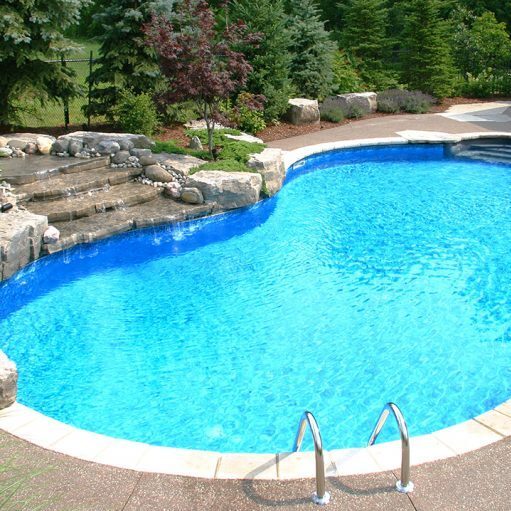Creating a backyard oasis is a significant investment in your home and lifestyle that few of us can pay for without financing at least a portion of the purchase. This article covers the five best pool financing approaches and discusses one that we often caution our customers against using. Added bonus: you can use these approaches to finance your swim spa!
The best pool financing tip: Think about the interest rate
The interest rate you’ll pay is probably the most important consideration when deciding how to finance your backyard pool or swim spa project. That’s because the higher the interest rate, the more your project will ultimately cost you. Interest rates depend on the Bank of Canada (something you can’t control) and on the type of loan you’re able to get (something you can control, at least somewhat).
There are two types of loans: secured and unsecured. A secured loan is one that uses an asset you own—usually your home but sometimes other investments you have—to support your loan application. If you default on the loan, the lender will simply claim all or a portion of that asset as repayment. The lender is taking less risk because you’ve put that asset up as collateral, so you get a lower interest rate. An unsecured loan, in contrast, doesn’t have any collateral the lender can turn to if you default, so the interest rates will be higher.
With that little financial lesson out of the way,
here are the 5 best pool or swim spa financing methods.
-
1. Home improvement loan from a bank or credit union
With a home improvement loan, you’ll be approved for a set amount of money which you’ll receive in a lump sum. You’ll pay the loan back with regular payments of principal and interest over a set period of time.
Loan type: Unsecured
Advantages: Great for one-time lump sum purchases where you know the cost ahead of time, such as a pool or swimpool. There’s the option of fixed or variable interest rate. These loans have lower interest rates than most credit cards.
Disadvantages: Higher interest rates than a secured loan. It can be difficult to get a larger personal loan without an excellent credit rating.
-
2. Home equity line of credit or home equity loan
A home equity line of credit or loan uses the value of your home as collateral to secure the loan with the lender. According to the Government of Canada , you can borrow up to 65 per cent of your home’s purchase price or market value on a home equity line of credit and up to 80 per cent of your home’s value on a home equity loan.
Loan type: Secured
Advantages: As a secured loan, you’ll pay lower interest rates. You can choose a fixed or variable interest rate. If you have a home equity line of credit, there is no fixed payment schedule and you only pay interest on the amount you use.
Disadvantages: You will most likely need to pay legal and appraisal fees as part of the application process. If you have a home equity loan (as opposed to a line of credit) you’ll receive a lump sum payment and will have to repay the loan back at fixed amounts on a fixed schedule and within a certain time period.
-
3. Personal line of credit
A personal line of credit is a little like a tab at a restaurant. You can keep adding to it, up to a pre-established maximum.
Loan type: Unsecured
Advantages: You can continue to reuse your line of credit after you’ve paid off your pool project. You only pay interest on the amount you use and the only payment you’re required to make every month is the minimum payment established by the lender, which may be interest only.
Disadvantages: As an unsecured loan, you’ll pay higher interest rates than a secured loan or line of credit. You’ll be subject to a variable interest rate, which isn’t ideal if interest rates are on the rise. It can be tempting to keep spending on your line of credit, especially since banks and credit unions make them so easy to use.
-
4. Mortgage refinancing
You can go to the lender where you have your mortgage and add more money to the amount you owe on your mortgage. (If you’re buying a new house, you can do this at the time of purchase as well.)
Loan type: Secured
Advantages: You'll be paying mortgage interest rates, which are usually much lower than other loan types. You can borrow up to 80% of your home’s value, minus any mortgage balance.
Disadvantages: Stricter mortgage refinancing rules came into effect on January 1, 2018, which may make it more difficult for you to qualify for mortgage refinancing. You may need to pay legal and appraisal fees.
-
5. Financing through your pool dealer or installer
These loans are offered through independent third parties working in partnership with your dealer or installer. You’ll pay the loan back over a certain period of time at set amounts and on a set timetable.
Loan type: Unsecured
Advantages: May be easier for people with less-than-perfect credit ratings to get approved. May offer interest-free periods as incentives.
Disadvantages: Interest rates may be higher than the unsecured loans and lines of credit you could get through traditional lenders like banks and credit unions.
And, finally, the financing method we don't recommend
We've covered the best pool financing approaches. So what shouldn't you do? The financing method we wouldn’t recommend for your pool or swimpool is a credit card. That’s because most credit cards have very high interest rates (sometimes in excess of 20 per cent). Even if your credit card has a low interest rate, you’ll want to ensure that this isn’t a promotional rate that will expire before you’re able to pay off the balance of the pool purchase. Some pool installers don’t even accept credit cards for payment, or only accept credit cards for the deposit. Others accept them but ask you to pay an additional three per cent to cover the merchant service fees that are charged by the credit card company.
We hope this advice shows you there are many ways to finance your backyard dreams. Financing is a topic we discuss with almost all of our customers, so don’t hesitate to reach out if we can help you, too.
RELATED ARTICLES

Luna + Solei: 24/7 Pool Care That Works While You Rest and Play

Upgrade Your Pool Filtration with AFMng: Say Goodbye to Sand, Hello to Sparkling Water
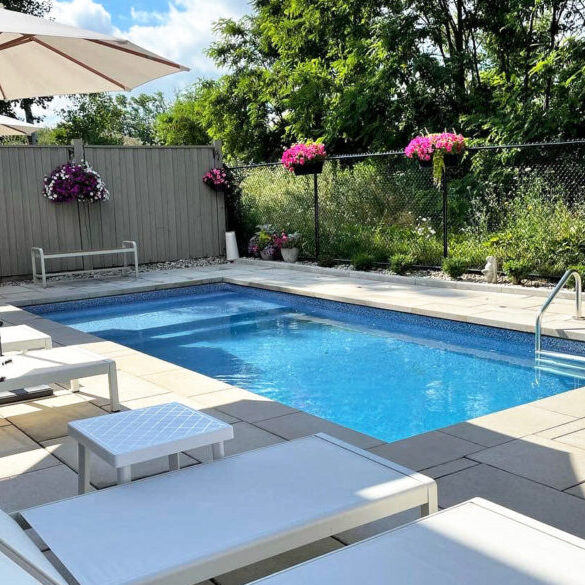
Plunge Pool vs. Traditional Swimming Pool: Which One Is Right for You?

What is a plunge pool, and should I get one?

Understanding and Addressing Pool Liner Wrinkles

What is a Pool Orientation and Why is it Essential for New Pool Owners?

Benefits of In-Person Shopping for Hot Tubs, Pools & Swim Spas
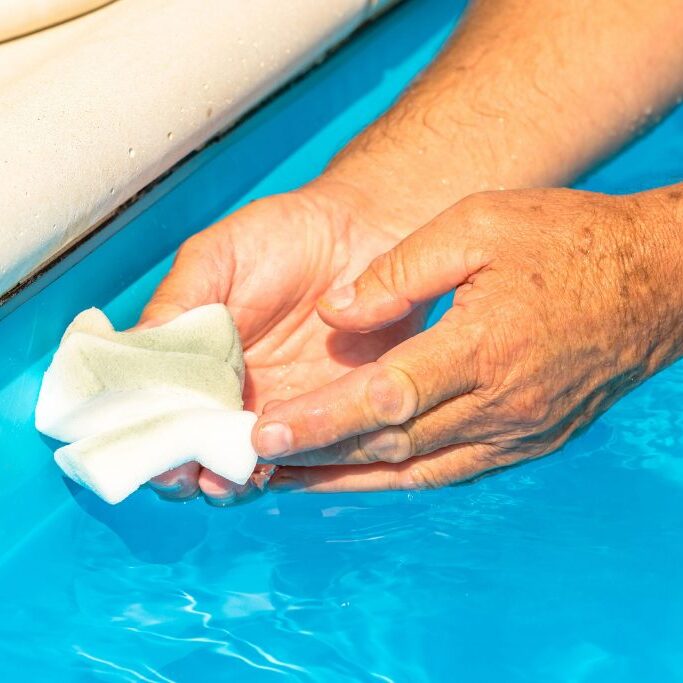
How to Treat and Prevent Metals and Staining

Should I finance my pool purchase?
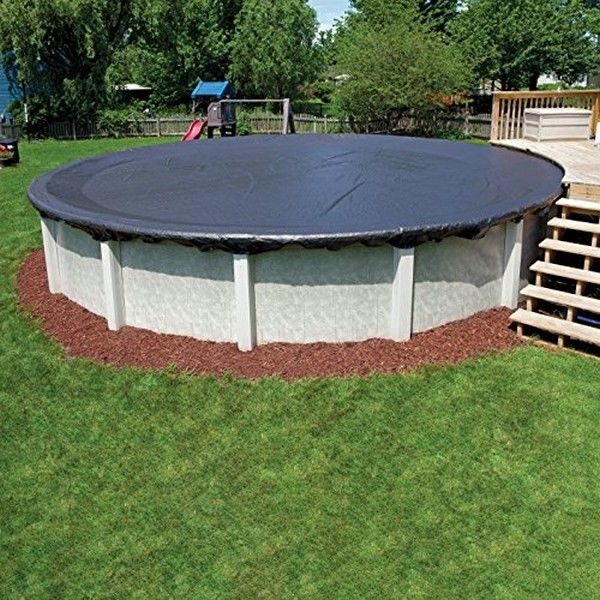
Above Ground Pool Closing Instructions

The Benefits of Borate to Treat Your Pool

How to Reduce Phosphates in Your Pool
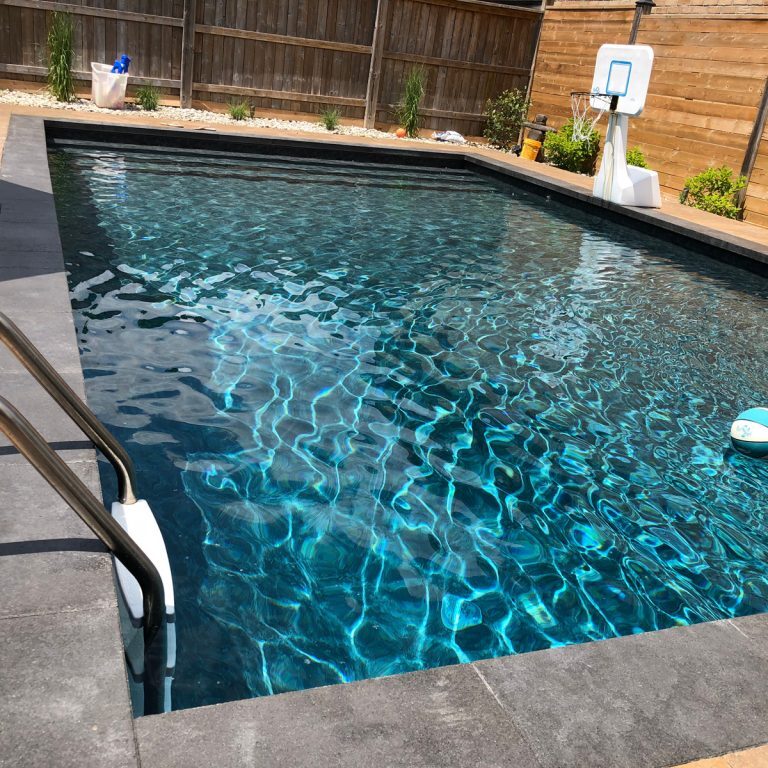
Spring Set-up for Pool UV Systems

How to Treat Pool Algae

How to Change & Clean the Filter Media

How to Clean a Pool Salt Cell

How to Treat and Prevent Cloudy or Foggy Pool Water

